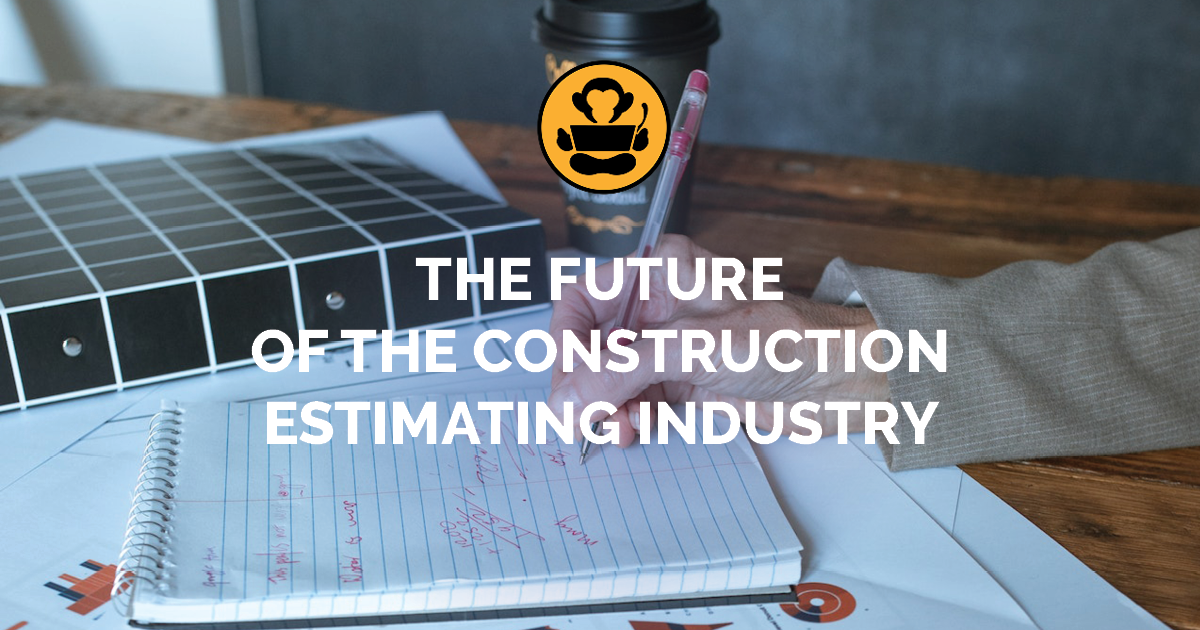
The construction industry has undergone significant changes in recent years, and the estimating process is no exception. Advancements in technology, changes in industry standards, and growing interest in sustainable practices are transforming the way construction companies approach estimating. As the industry continues to evolve, it is essential for companies to adapt to these changes to remain competitive. We’ve explored the future of the construction estimating industry and explain how companies can adapt.
The COVID-19 pandemic forced the trend toward remote work in many industries, and construction is no exception. Remote work presents both challenges and opportunities for construction estimating. Remote work can reduce the costs associated with travel and in-person meetings. However, remote work can make collaboration and communication extremely difficult, especially when it comes to complex estimating projects. Not to mention many construction jobs are boots-on-the-ground positions which can only be worked in the field and not from home.
To adapt to remote work, construction companies must be willing to invest in technology that facilitates remote collaboration and communication. Video conferencing software, project management software like monday.com, and other collaboration tools can help ensure that estimating projects run smoothly even when team members are working remotely.

Photo by RDNE Stock project
Companies must take a look at their roles and determine which can be migrated to working from home positions and which need to stay as is. Reducing the amount of office space needed for your team not only lessens your monthly expenses but possibly also your team’s carbon footprint. Yet, according to the Harvard Business Review in, “Is Remote Work Actually Better for the Environment?”, by Ganga Shreedhar, Kate Laffan, and Laura M. Giurge, there are still mixed reviews if working from home is truly better for the environment or not.
Companies must be willing to adopt new processes and workflows that are designed for remote work to remain competitive in the hiring market. Younger generations are more open to remote working and companies want to remain relevant for their next generation of team members. This may require revisiting existing processes or creating new SOPs to accommodate remote work and ensure that projects are still getting completed on time and within budget.

Photo by RDNE Stock project
We’ve discussed AI for Construction Estimating Professionals previously but to quickly surmise, the main areas we think AI can benefit construction estimators are with: Reporting, Project Management, Maintenance, Marketing & Content Creation, and Data Analysis. One of the primary benefits of AI for construction estimating professionals is the ability to automate and streamline many routine tasks.
Sustainable practices are becoming increasingly more common in the construction industry, and estimating is no exception. Eco-friendly or recycled building materials, green energy solutions, and other sustainable practices are becoming more prevalent. Construction companies should keep this in mind when modernizing their estimating processes.
One of the primary challenges of sustainable construction estimating is the lack of standardized cost data for sustainable materials and technologies. Construction experts must learn to collaborate with other industry experts, distributors and suppliers to gather data on the costs of sustainable materials and technologies. To adapt to these changes, construction companies must be willing to research and invest in sustainability-focused employees, professional networks and technologies. Construction professionals must be willing to prioritize sustainability in their estimations and adjust their pricing strategies accordingly.

Photo by RDNE Stock project
By looking into outsourcing aspects of your construction estimating process, your team can free up more time to take on more projects. Hiring a company like Takeoff Monkey to complete your takeoffs, ensures your quality of work will not diminish while your team focuses on other areas of the project bidding process. Using Takeoff Monkey is fast, simple and most importantly accurate. We pride ourselves on our quality control while maintaining quick turnaround times.
Once you receive your client’s ITB, share project files with our team one of three ways: either by email, via our website, or become a monthly fixed rate client to submit projects through your own customizable client bid board in monday.com. We will start working on your takeoff as soon as possible and you’ll receive an email when the project files are ready. Monthly fixed rate clients have the option to archive projects on their bid board to easily access later and to track the project further once your team has won the contract with custom fields like contract amounts or team assignments. Contact Takeoff Monkey today to learn more about our pricing plans and how we can help your company navigate the future of construction estimating.
The construction industry is evolving rapidly, and companies that fail to adapt risk falling behind their competitors and being swallowed whole by the ever-changing market. By embracing new technologies such as AI, prioritizing sustainable practices & materials, adapting to remote working (when applicable), and outsourcing various processes, teams can position themselves for success in the future. In order to remain relevant and competitive in the industry, companies must be open to investing in personnel, technology, and implementing new processes designed to meet the evolving needs of the industry.